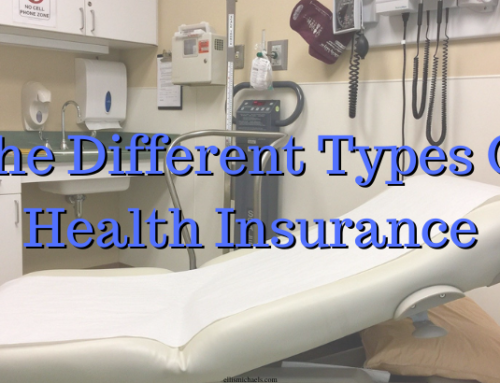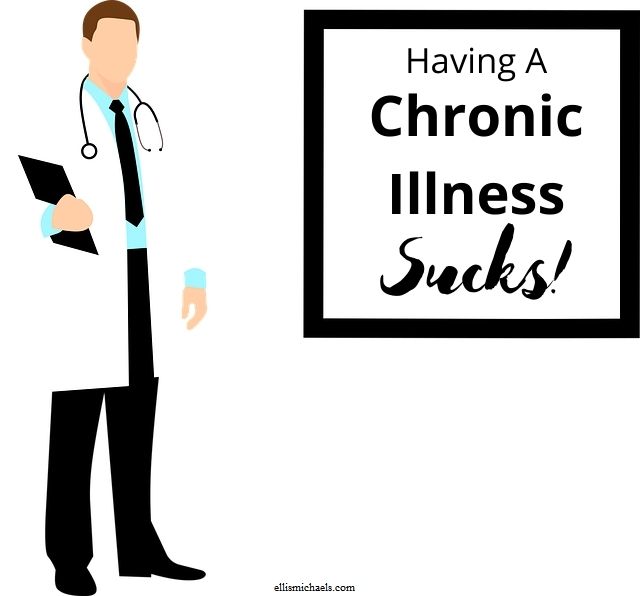When you’re living with a chronic medical condition, it’s incredibly important to have a good relationship with your doctor(s) and other medical providers. A good relationship can be the difference between getting the care you need and getting treated like you don’t even exist.
A lot of patients don’t take the time to cultivate a good relationship with their medical providers. This is a huge mistake, especially for those of us living with rare and chronic medical conditions. Fortunately, there is a lot you can do to establish a good relationship with your doctor(s) and other providers.
In this article, we’re going to look at some ways you can improve your relationship with your doctors, nurses, and other medical providers. But first, let’s take a look at why you should work on building these strong relationships.
Why You Need A Good Relationship With Your Doctor
Table of Contents
Many of the reasons why you should work on building a strong relationship with your doctor are the same reasons you should with everyone. Getting along with the people in your life make living easier.
Think about the people in your life who you have good relationships with. They could be friends, relatives, acquaintances, or whoever. Do you find it easy to communicate with them? To be honest? Do you feel relaxed when you’re around them?
Odds are, the answers to these questions are all “yes.” We feel more comfortable around people we’ve built good relationships with and the same applies to doctors. To get the best possible care, you need to feel comfortable around your doctor and other medical providers.
When you’re comfortable with someone, you’re more likely to be honest and open with them. This is incredibly important when it comes to doctors. You only get a few minutes with them so it’s crucial that you feel comfortable enough to tell them whatever’s bothering you right away.
 Some people might feel embarrassed telling their doctor about certain medical symptoms. When I was a teenager, I used to get large, quarter-sized open ulcers on my testicles. Not only did they hurt: they were embarrassing. And, for a long time, I didn’t tell my doctor or anyone else about them because of that embarrassment.
Some people might feel embarrassed telling their doctor about certain medical symptoms. When I was a teenager, I used to get large, quarter-sized open ulcers on my testicles. Not only did they hurt: they were embarrassing. And, for a long time, I didn’t tell my doctor or anyone else about them because of that embarrassment.
At the time, I didn’t have a good relationship with my doctor. I was always nervous around him and felt like he was judging me. Now that I do have a good relationship with him, I know that it was all in my head. If I’d taken the time to build a good relationship with him back then, I would’ve realized that he’s a kind, compassionate, an non-judgmental physician.
Another reason it’s important to build a strong relationship with your doctor is so that s/he feels comfortable with you. You want your doctor to not only be at ease around you, but to like you as a person. Everyone treats people differently based on whether or not they like them. And don’t forget: doctors are people, too.
Just because someone has M.D. after their name doesn’t mean they’re not human. While doctors are trained to treat all their patients equally, it doesn’t always play out that way in real life. Just like everyone else, doctors have people they like and people they dislike. And guess which ones get the best medical care? You guessed it: the patients that they like.
It’s always a good idea to try to build good relationships with the people around you. I know it can be hard when you’re depressed, anxious, in pain, and living with a chronic illness. But if you make the effort, it will definitely improve the quality of care you receive. To learn how to find the best healthcare providers, you may want to read this: Finding The Right Doctor For You.
Now lets look at what you can do to improve your relationship with your doctor(s) or other medical providers.
Establishing A Good Relationship With Your Doctor
There are a number of things you can do to improve the relationship you have with not only your primary care doctor, but your specialists, their assistants, nurses, and other staff. The more of these you do, the better. Some may be obvious to you while others might not.
1. Be on time for your appointments
Don’t you just love sitting around waiting for someone else? You don’t? Well, guess what? Neither does your doctor or his staff.
 This is one of those obvious ones but it needs to be mentioned. Show up on time or a little early for your appointments. Hospitals and doctor’s offices are busy places. They don’t have time to wait for you.
This is one of those obvious ones but it needs to be mentioned. Show up on time or a little early for your appointments. Hospitals and doctor’s offices are busy places. They don’t have time to wait for you.
Being late, especially chronically late, is one of the easiest ways to piss off your doctor and his entire staff. And I know what you might be thinking: Doctors are late for their appointments all the time. But do you know why they’re late?
Doctors are typically late for appointments because they take extra time with the patients who really need it. Because of our terrible, drug-and-insurance-company-run medical system, doctors only get to spend a few minutes with patients. For people who have serious health problems, this simply isn’t enough. So the good doctors out there take as much time as they need to help these patients.
Nobody likes waiting. I get it. But for the right doctor it’s totally worth it. Because when it’s you who needs extra time with him/her, you can get it. So make sure you show up on time for your appointments. If you’re going to be more than a couple minutes late, call. Your doctor and his entire staff will respect you for it.
2. Be prepared for your appointments
Before you even walk in the door to your doctor’s office, you should already know exactly what you want to say. There’s simply not enough time for you to figure it out in the exam room.
In the days and weeks leading up to your appointment, think about what you want to say to your doctor or other healthcare provider. Whenever something worth mentioning comes to mind, write it down. There have been times I’ve thought for weeks about something I wanted to tell my doctor only to completely forget it when I’m actually in the room with him/her. And, of course, I remember it as soon as I’m out the door.
When you go to see your doctor, I recommend bringing a piece of paper (or a notepad app on your phone) with the following information on it:
 List of current medications
List of current medications- Any side effects you’re experiencing from those meds
- Any recent hospitalizations or med changes from other doctors
- Symptoms you’ve had since your last visit
- Symptoms you’re currently having
- Any other relevant information (change of insurance, major life changes, etc.)
It may sound like a lot of work, but it’s really not. It should only take you a few minutes. And your doctor will definitely thank you for it. It shows that you take not only your medical care seriously but also his/her time.
3. Be honest
This one may seem obvious, but a lot of people have trouble being honest with their doctor. I should know: I used to be one of those people.
I don’t like to come across as weak or needy: never have. I don’t like people to feel bad for me. And I don’t like people treating me differently because they think I’m sick – even if I’m really sick.
I’ve said it before and I’ll say it again: doctors are people. And, as people, I never used to want to say anything to them that would make me look weak or needy, even if I was weak and in need. I’ve downplayed the severity of the pain I was in, left out serious symptoms I was having, and lied about my drug and alcohol use.
Well, none of those things made me look less weak or needy. They just made it impossible for my doctor to treat me as well as he could’ve. If you don’t give your doctor all the information they need, you won’t be getting the care you deserve.
It’s important to pick healthcare providers you can be honest with. If you’re a twenty-year-old man with a chronic illness, for example, it might not be a good idea to choose a young, drop-dead gorgeous woman as your doctor. Sure, she might be smart, pleasant, and attractive. But would you be comfortable telling her that you’ve been bleeding out your butt for the past few days? I know twenty-year-old me wouldn’t have been!
Yes, doctors are people. And people can be judgmental. But doctors go through extensive training to make them comfortable with the things you aren’t. Just because you’re embarrassed about something doesn’t mean they will be. Always be honest with your doctors and other providers.
4. Be polite and friendly
Here’s another one that should be obvious. In general, the nicer you are to people, the better they treat you in return. The more you take an interest in their lives, the more likely they are to care about yours.
 I can tell you what country my primary care physician (PCP) grew up in, where he went to medical school, his marital status, how many children he has, what he likes to do in his spare time, how he feels about the medical system, and a whole lot more. What can you tell me about your PCP other than the fact s/he’s a doctor?
I can tell you what country my primary care physician (PCP) grew up in, where he went to medical school, his marital status, how many children he has, what he likes to do in his spare time, how he feels about the medical system, and a whole lot more. What can you tell me about your PCP other than the fact s/he’s a doctor?
I’m not saying you have to become best friends with your doctor(s). And you certainly don’t have time to play 20 Questions in the exam room. But a simple, “How are things with you and your family, doc?” can go a long way. It builds rapport and shows that you not only care about what they can do for you, but that you also care about them as a person.
When you have a chronic condition, especially one that causes you a lot of physical (or emotional) pain, it can be hard to be friendly. But do your best. Try to be polite and friendly with your medical providers and it will definitely improve your quality of care.
5. Get to the point
After your doctor comes into the exam room and you’ve exchanged pleasantries, don’t waste any time letting him/her know what’s bothering you. Hopefully you’ve made a list (from #2) and have it handy, whether it’s a handwritten list or on your phone. Now’s the time to either show your doctor or start reading it to him/her.
 Most doctor visits are pretty short. The average appointment with your primary care physician is only about 15 minutes long.1 So you really need to jump right into what’s bothering you right away. But the length of your visit is only one time concern to consider.
Most doctor visits are pretty short. The average appointment with your primary care physician is only about 15 minutes long.1 So you really need to jump right into what’s bothering you right away. But the length of your visit is only one time concern to consider.
I remember learning in college that the average doctor only actually listens to his/her patients concerns for a few seconds before their mind goes off in another direction, thinking about diagnoses, treatments, what they’re having for dinner, or whatever. A recent study from 2019 showed that doctors only listen to their patients for an average of 11 seconds before interrupting them.2 11 seconds!
Now that’s the average doctor. Hopefully yours is better. But the point still stands. You need to get right to the heart of what’s bothering you as soon as you start talking. You may only have your doctor’s full attention for a few seconds so make the most of them.
6. Ask questions
If there’s something you don’t understand, ask! Not sure what that big medical word was that your doctor just used? Ask her what it means. Unsure about exactly when you’re supposed to take the medication your doctor just prescribed? Ask him!
 When it comes to your body and your health, there are no stupid questions. If you’re unsure about something, ask. Most doctors are happy to answer their patients’ questions. They spent a lot of time (and money) going to medical school and like to show off their hard-earned expertise.
When it comes to your body and your health, there are no stupid questions. If you’re unsure about something, ask. Most doctors are happy to answer their patients’ questions. They spent a lot of time (and money) going to medical school and like to show off their hard-earned expertise.
Sometimes you’ll think of a question – maybe a really important question – after you’ve left your doctor’s office. You shouldn’t have to wait until your next visit to ask it. There are one-or-two ways to go about getting an answer. You can simply call your doctor’s office and ask your question. Or, if your doctor offers it, you can go online and ask there.
Most doctor’s offices have patient portals you can log into to check upcoming appointments, look at lab results, request prescription refills, and message your doctor. If your doctor has either an email address or a patient portal, you can ask your question online.
Again, there are no dumb questions when it comes to your health and well-being. If you’re unsure about something, never be afraid to ask your doctor any questions you may have.
7. Follow your doctor’s instructions
There’s a word that doctor’s use to describe patients who do not listen to them: noncompliant. You don’t want your doctor jotting down that you’re noncompliant in your chart. Not only will they treat you differently, so will every other provider they send your medical records to.
 Now, there’s nothing wrong with questioning your doctor. While they are highly-trained medical experts, they don’t know everything. Doctors can be wrong and sometimes they suggest a treatment that might not be right for you. And you do have the right to refuse treatment.
Now, there’s nothing wrong with questioning your doctor. While they are highly-trained medical experts, they don’t know everything. Doctors can be wrong and sometimes they suggest a treatment that might not be right for you. And you do have the right to refuse treatment.
But if you keep going to the doctor and keep refusing to do what s/he suggests, what’s the point of going at all? Some patients go to the doctor over and over but don’t listen to a word they say. Or they do listen but only follow their instructions sometimes.
Doctors want their patients to do their own research and question them if something doesn’t seem right. But, generally, doctors want their patients to listen to them. They spent a lot of time (and money) going to medical school and usually know what they’re talking about.
If your doctor tells you to take a medication twice a day, take it twice a day. If they tell you to stay off your feet for a week, stay off your feet for a week. Unless you have a legitimate reason not to, follow your doctor’s instructions. That’s the whole point of going to the doctor in the first place!
Conclusion
Establishing a good relationship with your doctor is crucial to getting the best possible medical care. Trust and open communication are important in any relationship and doctor-patient relationships are no different. If you follow the 7 tips in this article, you’ll be well on your way to building a great relationship with your doctor.
How is your relationship with your doctor(s)? What, if anything, have you done to improve those relationships? Please leave your answers in the comments section at the bottom.
Join the Ellis Michaels mailing list to stay up to date with the latest news about chronic illnesses, recent articles and other publications, and more.
References
1Tai-Seale, M., McGuire, T., & Zhang, W. (2007). Time allocation in primary care office visits. Health Services Research, 42(5):1871-94.
2Ospina, N., Phillips, K., Rodriguez-Gutierrez, R., Castaneda-Guarderas, A., et al. (2019). Eliciting the patient’s agenda – secondary analysis of recorded clinical encounters. Journal of General Internal Medicine, 34:36-40.







Leave a Reply